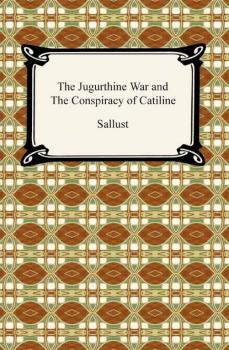ТОП просматриваемых книг сайта:
Прочая образовательная литература
Различные книги в жанре Прочая образовательная литература, доступные для чтения и скачиванияАннотация
Problem-based learning (PBL) has been deployed as a student-centered instructional approach and curriculum design in a wide range of academic fields across the world. The majority of educational research to date has focused on knowledge-based outcomes addressing why PBL is useful. Researchers of PBL are developing a growing interest in qualitative research with a process-driven orientation to examining learning interactions. It is essential to broaden this research base so as to support PBL designs and approaches to leading students into higher-order thinking and a deeper approach to learning. Interactional Research Into Problem-Based Learning explores how students learn in an inquiry-led approach such as PBL. Included are studies that focus on learning in situ and go beyond measuring the outcomes of PBL. The goal is to further expand the PBL research base of qualitative investigations examining the social dimension and lived experience of teaching and learning within the PBL process. A second aim of this volume is to shed light on the methodological aspects of researching PBL, adding new perspectives to the current trends in qualitative studies on PBL. Chapters cover ethnographic approaches to video analysis, introspective protocols such as stimulated recall, and longitudinal qualitative studies using discourse-based analytic approaches. Specifically, this book will further contribute to the current educational research both theoretically and empirically in the following key areas: students’ learning processes in PBL over time and across contexts; the nature of quality interactions in PBL tutorials; the (inter)cultural aspects of learning in PBL; facilitation processes and group dynamics in synchronous and asynchronous face-to-face and blended PBL; and the developing nature of PBL learner identity.
Аннотация
First published just before the end of the Roman Republic by that legendary country's most immortalized leader, «The Conquest of Gaul,» also called «Commentarii de Bello Gallico,» is an account of Julius Caesar's capture of Gaul in the first century. Beginning with the Helvetian War in 58 BC, Caesar uses his exemplary Latin prose to explain how his forces were protecting Provence, and how they were later drawn out in campaigns against the Veneti, the Aquitani, numerous Germanic peoples, the Belgae, the Gauls, and the Bretons. Caesar, perhaps in defense of his expensive and geographically vast wars, explains the methods of his campaigns, from the timing of the seasons to provisioning and defense. This autobiographical work is both a concise reckoning of forces and an informative wartime narrative, consistently revealing the author as a politically brilliant commander and an unrivaled man.
De Bello Gallico and Other Commentaries (The War Commentaries of Julius Caesar: The War in Gaul and The Civil War) - Caius Julius Caesar
Аннотация
"De Bello Gallico" and Other Commentaries (The War Commentaries of Julius Caesar: The War in Gaul and The Civil War)' is a collection of war writings by Julius Caesar. Included in this volume are the first hand recollections of one the most important figures in the history of human civilization, Julius Caesar. 'The Gallic War (Books 1-8)' and 'The Civil War (Books 1-3)' as translated by W. A. Macdevitt are included in this volume.
Аннотация
Napoleon Bonaparte (1769-1821) was a notorious French military and political leader during the latter stages of the French Revolution. As Napoleon I, he was Emperor of the French from 1804 to 1815. He is best remembered for his role in the wars led against France by a series of coalitions, the Napoleonic Wars, involving every major European power. After a streak of victories, France secured a dominant position in continental Europe during which Bonaparte established authority over much of Europe to spread revolutionary ideals. «Napoleon's Military Maxims» allow us to sample the knowledge and foresight of one of history's most celebrated military commanders. Not only does it provide a captivating glimpse of the French leader's accomplished ability for conducting military operations, but also exposes his thoughts, theories, and commentaries on conducting war and the art of administering statecraft.
Аннотация
William Bligh (1754-1817) was an officer of the British Royal Navy and a colonial administrator eventually rising in rank to Vice Admiral. During his command of the «Bounty» in 1789, a notorious mutiny occurred. William Bligh and eighteen of his loyal seamen were expelled from the «Bounty» onto a small boat and began the greatest open-boat voyage in history, sailing some 4,000 miles to protection in Timor. The mutineers, led by Fletcher Christian, sailed off with the «Bounty» in other pursuits. «Mutiny on the Bounty» is a collection of early detailed documents of the voyage of the «Bounty». Largely in part to the effort of Bligh to maintain an accurate log before, during, and after the actual mutiny, even the Bounty's crew list is well chronicled. Bligh returned to Britain and reported the mutiny to the Admiralty two years and two and a half months after leaving England.
Аннотация
An extraordinary account of the Great Roman Civil War, this work relates the years of battles and brilliant strategies that led to the beginning of the Roman Empire. Julius Caesar and Pompey the Great were widely known as two of the greatest generals ever to have lived in Rome, and their four-year struggle for supremacy is one of the biggest political and military conflicts in recorded history. While these two men had united to gain vast amounts of territory under the power of Rome, they turned against one another in 49 BC, initiating a war that pitted legion against legion in Italy, Greece, Hispania, Africa, and Egypt in a vicious civil war. Though the armies were evenly matched, the Roman Republic came to an end when Caesar's military genius and luck made him victorious. After defeating Pompey and his conservative faction of Optimates, Caesar became the Perpetual Dictator of Rome, which led to a change in government that lasted for the next five centuries. A remarkable historical document, «The Civil War» brings to life all of the hostilities and campaigns of unparalleled commanders, and all of the enormous political ramifications that followed for the people of Rome and the ancient world.
Аннотация
Before he was the Prime Minister of England, and before he was even in Parliament, Winston Churchill was a soldier, stationed first in India and then in Sudan. His early years in the British army form the background for this historical work, which is actually his second published book. Written in 1899, it is an account of Britain's re-conquest of the Sudan, providing a description of the British conflict led by Lord Kitchener against Islamic Jihadists set to conquer Egypt and drive out infidels. Many battles and important figures are described, from the murder of General Charles George Gordon, to the siege at Khartoum, to the Battle of Omdurman. Throughout the work there is also a generous amount of commentary concerning Mohammedanism, British attitude to the war, the modern machinery of war, such as the telegraph, and its relative effectiveness. Churchill was ready to criticize if he found fault, and some of this censure was removed when his political career began. This edition is an unabridged version of Churchill's work, first written as a soldier, war correspondent, and young man with a bright and momentous future before him.
Аннотация
Consider by scholars as the single most influential book in naval strategy, Alfred Thayer Mahan's «The Influence of Sea Power Upon History: 1660-1783,» is a history of naval warfare and sea power during the seventeenth and eighteenth centuries that would have a profound influence on the world in the early part of the twentieth century. After the publication of this work the policies outlined in it would soon be adopted by the major military powers of the time ultimately causing the World War I naval arms race. Mahan published «The Influence of Sea Power Upon History: 1660-1783» while he was President of the US Naval War College. In it he examines what factors lead to supremacy of the seas, focusing heavily on how Britain rose to Imperial dominance through the development of its navy. The book contains numerous descriptions of a series of European and American wars and how naval power was used in each. After the publication of this work the policies outlined in it would soon be adopted by the major military powers of the time ultimately causing the naval arms race of World War I.
Аннотация
Gaius Sallustius Crispus (86-34 BC), or Sallust, was a renowned Roman historian and a decided partisan of Caesar. After his retirement from statesmanship, Sallust devoted his time to the writing of literary and historical works that focused on great persons and events of his age. Although a lesser-known Roman historian, Sallust has become particularly revered for his intention to write scholarly, not merely anecdotal, discussions of events. Nietzsche described his style as «compact, severe, with as much substance as possible, a cold sarcasm against 'beautiful words' and 'beautiful sentiments'.» His «Jugurthine War» relates the war in Numidia c. 112 B.C., of which Rome was the victor. It is most valued for his introduction, in which Sallust gives commentary on the moral decay and discord of the Roman political scene, and of his longing for the forgotten ideals of Rome. In his «Conspiracy of Catiline,» Sallust's deep concern for the decline of Rome is evident through the events and conspiracies of Catiline and his followers in the year 63 BC.
Аннотация
Carl von Clausewitz entered the Prussian military at the age of twelve as a Lance-Corporal and would go on to obtain the rank of Major-General. In «On War», Clausewitz draws upon his experiences fighting in the French Revolution and Napoleonic Wars, as well as his military studies at the «Kriegsakademie», or Prussian War Academy, which he would eventually become director of. Clausewitz employs a dialectic approach to military analysis, which leads to frequent modern misinterpretation. «On War», a mainstay of modern military colleges, is a monumental work of military analysis and philosophy, which continues to be studied and interpreted to this day.










